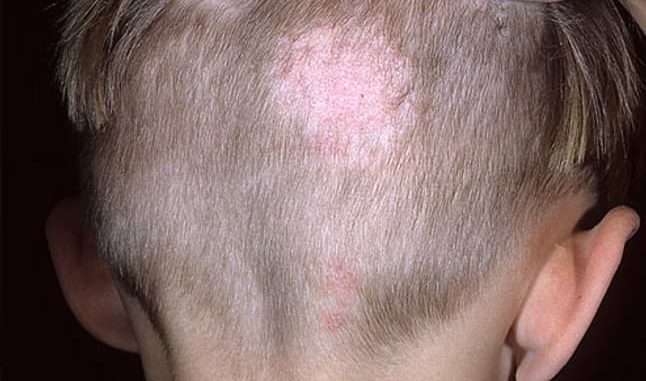
Ringworm is an infection on the skin, hair, or nails. It usually causes itchy, scaly, bald patches on the head. Ringworm gets its name because of its circular appearance. Infection of the scalp is a contagious infection. It’s mostly common in toddlers and school-age children.
Causes of ringworm.
Fungi called dermatophytes cause ringworm of the scalp. Fungi are organisms that thrive on dead tissue. Dermatophytes prefer warmth and moisture, so they thrive on sweaty skin, overcrowding and poor hygiene increase the spread of ringworm. The fungus attacks the outer layer of skin on the scalp and the hair. This causes those hairs to break.
Human to human- ringworm often spreads through direct skin-to-skin contact with an infected person.
Object to humans– they may spread by contact with objects or surfaces that an infected person has touched. This includes items such as clothing and towels.
Animal to human- you may contract ringworm by touching an animal with ringworm. Ringworms are fairly common in cows, goats, pigs, and horses.
Symptoms.
The most common symptoms of ringworm are itchy patches on the scalp.
Other symptoms include:
- Shannon Beador age, children, husband, accident, net.
- Shari Lynn Belafonte-Bio, Age, Husband and children, Education, Career, Net Worth
- Who is DR. William Samoei Ruto? Age, Net worth
- Britney Spears age, husband, children, fame, net worth.
- Leslie Rangel bio-age, KTBC -7, children, husband, net worth.
- Caroline Stanbury Bio, Wiki, Real Housewives of Dubai, Age, Education, Height, Family, Husband, Children, and Career
- Elizabeth MacDonald Bio, Wiki, FBN, Age, Education, Height, Family, Husband, Children, and Career
Brittle hair.
Painful scalp.
Swollen lymph nodes.
Low-grade fever.
In most severe cases, you may develop crusty swelling called kerion that drains pus. Therefore, these can lead to permanent bald spots and scarring
How is it diagnosed?
A visual exam is often enough for a doctor to diagnose ringworm of the scalp. However, the doctor may use a special light called a wood lamp to illuminate the scalp and determine the sign of infection.
The doctor also takes a skin sample to confirm the diagnosis. The sample is then sent to a lab to determine the presence of fungi. However, this process may take up to three weeks.
Treatment.
Antifungal medicines- are taken through by the mouth to clear the scalp ringworms, which usually work well.
Antifungal cream and shampoos- these are used for fungi to get into the shafts where creams and shampoos cannot reach. However, they cannot cure the condition.
Recovery and reinfection- ringworm heals very slow. It can take more than a month to see any improvement. However, be patient and continue taking all medication.
Prevention.
A person can prevent scalp ringworms by keeping skin clean and dry. Moreover, you should avoid sharing hats, combs, or brushes.
- List of best private primary schools in Kirinyaga County.
- Egerton university, fees, location, courses.
- Bay head elementary school history, enrolment, programs offered.
- What is the history of Kenyatta University?
- How is The Lenana Boy school and location?
- List of Accredited Private Universities in Kenya
- Kenya Medical Training College, courses, requirements.